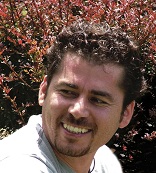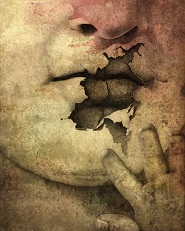By Ava Homa:
Turkey brutally slaughtered Kurdish civilians once again, the world turned a blind eye once again, and the Kurds were left puzzled and agonized at the beginning of a New Year: a time that is supposed to bring refreshment.
The good news is that we have Kurdish talents whose weapon is their passion and creativity; people who use their brush to raise awareness and seek justice through the international language of art. Bekir Orhan is a Kurdish talent worth knowing and be proud of. He is from Northern Kurdistan and currently lives in Atlanta, Georgia, United States. He holds Masters of Fine Arts and is skillful in design, illustration and fine arts. This Kurdish artist has a passion for Kurdish story telling in audio and visual forms. He has taught art and Kurdish dances to children and young adults.
Bekir shares a childhood memory with our readers:
 “One day, my mom and I went to a post office to make a phone call to one of my older brothers who was in the military. I was at 3rd grade and about 9 years old. At that time landlines were not as widely used because very few families could afford it. Once we arrived at the post office and found an available phone booth my mom handed me a little piece of paper and asked me to match the numbers on the paper to the ones on the phone and to dial. My mom wasn’t literate, and she didn’t speak Turkish which was, at that time, the only language allowed to be spoken anywhere any time and for any reason. I was to make the phone call, get to talk to my brother and tell my mom what he told me when the phone call was over. This was some sort of interpretation and I was the one to do it because I had learned Turkish at school. I did what she said and this was the conversation between my brother and me:
“One day, my mom and I went to a post office to make a phone call to one of my older brothers who was in the military. I was at 3rd grade and about 9 years old. At that time landlines were not as widely used because very few families could afford it. Once we arrived at the post office and found an available phone booth my mom handed me a little piece of paper and asked me to match the numbers on the paper to the ones on the phone and to dial. My mom wasn’t literate, and she didn’t speak Turkish which was, at that time, the only language allowed to be spoken anywhere any time and for any reason. I was to make the phone call, get to talk to my brother and tell my mom what he told me when the phone call was over. This was some sort of interpretation and I was the one to do it because I had learned Turkish at school. I did what she said and this was the conversation between my brother and me:
Me: Are you Shawkat?
My Brother (MB): Yes I am Shawkat. You are Bekir right?
Me: Yes I am Bekir.
MB: How are you?
Me: Mom is here. She wanted me to tell you hi!
MB: Tell her hi as well.
Me: She also said how are you?
MB: I am good, how is she?
Me: She said: Do you have pocket money?
MB: Yes I do!
Me: Ok. She said we’d send you some money.
MB: No, don’t send money, I have enough money for now.
Me: Is there anything else you would like to say?
MB: Say hello to everyone.
Me: I will
MB: God be with you!
Me: ………
“I still remember how frustrated my mom was for not being able to speak to her child for two years during his military service because her language, our mother tongue was forbidden. Phone calls were monitored by the government and everyone knew that disobedience could result in extreme punishment including death”.
AH: That’s incredibly inhumane of part of Turkey! Do you think the pain you experienced made you an artist? Did you choose to be an artist or did art choose you?
“I am not sure how clearly I would be able to answer this question, but what I can say about art is that I am glad to have been lucky enough to create. Art for me is simply an active expression that reflects what I wouldn’t be able to say in written or spoken words. As a visual artist, I enjoy the limitless dimensions of this ever-changing unique form of experience”.
AH: Why did you decide to devote your thesis to Kurdish identity and mother tongue?
“I wanted my thesis to be about Kurdish language because of its status in Turkey. Kurds in Turkey are denied their history, culture, language and political existence. Kurdish language couldn’t be spoken, written, sung in, or even mentioned until 1991. Kurds faced very harsh punishments when they used Kurdish in any form. There is still no education in this language although 20 million Kurds live in Turkey”.
AH: Tell us about your project of Mother Tongue.
“Having named it as: ‘Memories in Mother Tongue,’ my thesis project was a visual representation of my experiences related to my Kurdish heritage. The background study took form as an analysis of my personal experiences and problematic situations related to Kurds and their effects on my life as an individual in today’s society.
“With the completion of this project, I was able to recover from the negative effects of those experiences through the expressions that are reflected on each illustration. All the experiences and events identified in this study are short individual stories that mark different stages in my life. While individual pieces stand as visual translations of independent stories, they eventually complete a bigger picture with many aspects.
“The illustrations presented in this project contain autobiographical content, the psychological aspect of my experiences, and my personal approach to the contemporary politics in correlation with my Kurdish identity”.
AH: Do you think this project was also a project of self-discovery for you both as an artist and as a Kurd?
“Absolutely!”
AH: In what ways do you think art can help the Kurds?
“Art is an activity that we will never afford to miss in our lives. It indicates the existence of a community by representing its unique culture, beliefs and traditions. The identity of a community is defined within the limits of their artistic creation.
“Art can be used as an effective means of communication with international community in order to bring attention to political issues that Kurds are facing today because art is the most universal language in the world. Activities like art galleries and exhibition; movie festivals and plays can bring people from different backgrounds together where there will be an environment that will provide an atmosphere for networking, exchanging ideas and more. Another important benefit that art can offer is that it can help Kurds learn and teach many aspects of life in easier and more effective ways. This can help Kurds develop higher standards and self-sufficiency for their entire community. If “A picture is worth a thousand words” then we need to consider having more pictures around us.
“As an individual who has participated in a culture where I was classified as one of “others”, the second-class citizens, I would like to introduce you the “Memories in Mother Tongue,” a visual translation of significant experiences I’ve had in relation to my Kurdish identity. The content of this are in respect to contemporary Kurdish politics in reaction to the systematic process of “Turkification” of the Kurdish population in Turkey since early 20th century”.
People like Bekir can finely and artistically represent the Kurds internationally and raise awareness about the brutalities of an American ally who hopes to be part of European Union! For more information please visit his website: http://www.obekrorhan.com/
Ava Homa is a Kurdish-Canadian writer whose ‘Echoes from the Other Land’ was published in 2010, Canada. For more information visit www.Avahoma.com.
Copyright © 2011 Kurdistantribune.com
.jpg)





Dear Ava
It is nice and effective.
And more congratulation to the artist, Bekir Orhan, for his devotion to develop other nations information about Kurds power and their human right barriers!